-
Plant Name & Description
Botantical Name
-

Walker's Low Catmint Nepeta racemosa 'Walker's Low'
Member of the mint family. Despite its name it is not low-growing. Stunning dark lavender blue flowers provide great spring interest. If dead-headed or sheared will flower again in late-summer. Clumps of gray-green fragrant foliage provide attraction when not in bloom. This variety does not reseed.
-

Wall Germander Teucrium chamaedrys
A shrubby, semi-evergreen perennial with small dark green leaves, also known as Wall Germander. It bears pale pink to deep purple flowers in late summer. Small oak-like leaves are dark green and glossy on top and gray underneath. Cut to within an inch of ground level in spring, to maintain a compact habit. Prefers full sun.
-

Wasatch Fire Fire Chalice Epilobium (syn Zauschneria) garrettii 'Wasatch Fire'
Low-growing herbaceous perennial. Unlike other hummingbird flowers, this one is more compact. Bright red-orange tubular flowers bloom throughout the summer. Attracts hummingbirds. Requires moderate amounts of water. Good choice for planting over rock walls.
-
Washington Hawthorn Crataegus phaenopyrum
Small to medium pyramidally growing deciduous tree. Thorny limbs are covered with pure white flowers in the spring followed by bright red fruit that is preferred by birds. Glossy green leaves turn bright red in the fall. Works well as a specimen plant or as a screen. Can be difficult to work with due to the thorns. Tolerant of many soils and drought.
-
Wavyleaf Oak Quercus x undulata
Tall, deciduous shrub native to Utah. Wavyleaf Oak is a naturally-occurring hybrid of Gambel Oak (Q. gambelii) and Shrub Live Oak (Q. turbinella). Elliptical leaves have wavy edges and are dark blue-green above and dull green and hairy underneath. May be difficult to find for sale. Smaller and more drought tolerant than the similar-looking White Oak.
-
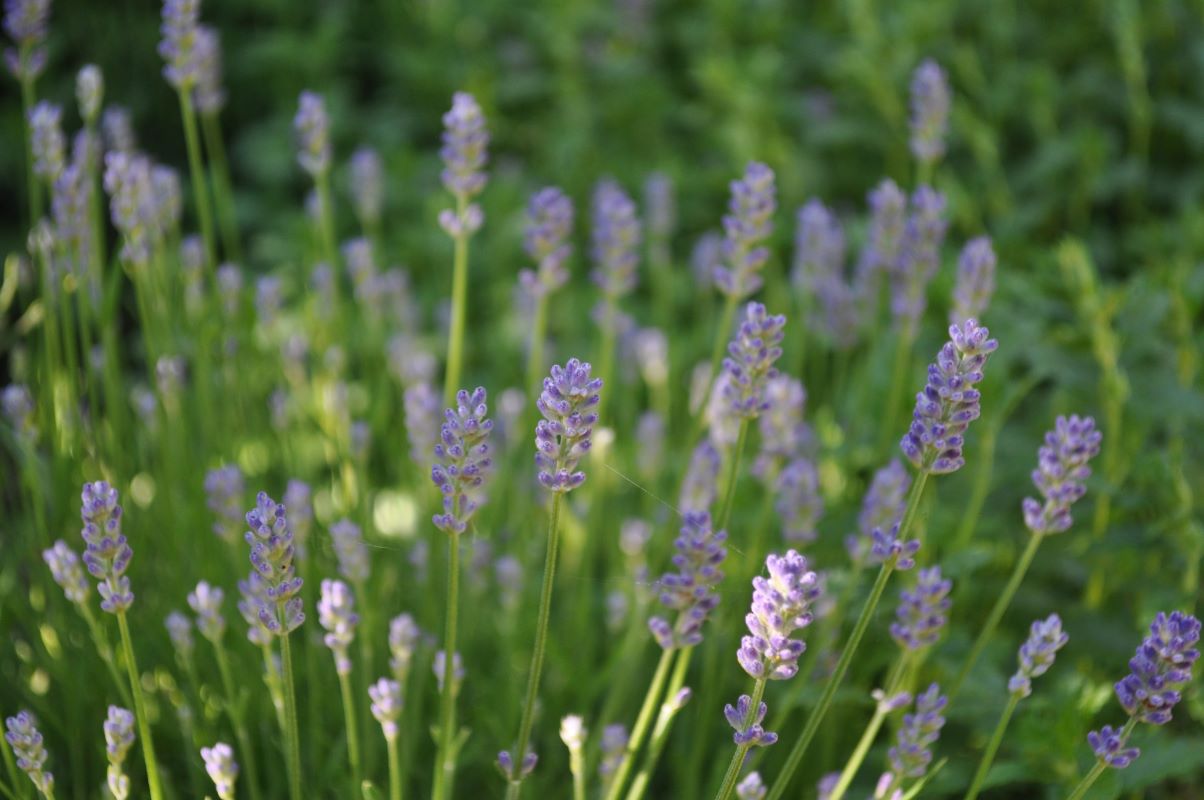
Wee One Lavender Lavandula angustifolia 'Wee One'
This is a dwarf lavender that is great for adding fragrance to small spaces. It has silvery, gray-green leaves and compact heads of lavender to blue flowers. This lavender is tolerant of many soil types. It likes well-drained soils and does not like to be overwatered.
-

Weeping Blue Atlas Cedar Cedrus atlantica 'Glauca Pendula'
Weeping form of Blue Atlas Cedar. Has irregularly shaped crown and will depend on how the tree was trained. Blue-green needles, silvery bark and a unique shape make this small tree stand out. Excellent specimen plant.
-
Weeping Norway Spruce Picea abies 'Pendula'
Slow-growing irregularly shaped evergreen conifer. Pendulous branches weep off of a fairly straight leader. Short stiff dark green needles, reddish-brown bark, and light brown cones make this plant a beautiful centerpeice for any landscape. May require some staking to help it attain a desirable form.
-

Weeping Peashrub Caragana arborescens 'Pendula'
Large deciduous shrub native to Manchuria and Siberia. 'Pendula' is typically grown with a single stem to give the appearance of a small weeping tree. Cascading branches with coarse dark green foliage make this an excellent accent plant. Yellow flowers bloom in May turning to green pea-like pods. As the pods age, they turn brown and split open flinging seeds. Tolerant of extreme cold, drought, and heavy soils. Siberian Peashrub is known to be invasive in the midwestern US.
-
Weeping White Spruce Picea glauca 'Pendula'
The weeping white spruce is a stately evergreen tree that grows tall but stays very narrow with attractive drooping branches. Gray-green needles grow up to 3/4 of an inch. It prefers acidic soils but is tolerant of other soils.
-

Weihenstephaner Gold Stonecrop Sedum kamtschaticum var. floriferum 'Weihenstephaner Gold'
Low-growing, clump-forming succulent. Glossy green leaves are inversely lance-shaped and toothed at the tips. Bears profuse, star-shaped, bright yellow flowers in late-summer turning to orange-red seed heads. Plant in well-drained soils.
-
Wells Dolly's Choice Mugo Pine Pinus mugo fastigiata 'Wells Dolly's Choice'
A relatively small, upright, cone-shaped dwarf conifer with the open, upright growing form typical of mugo pines. The dark green 2 inch long needles are borne in pairs. Best planted in small areas where evergreen interest is desirable. Tolerant of many soil types. Plant in well drained soils. Can tolerate some drought once established.
-

West Texas Grass Sage Salvia reptans
The cobalt-blue flowers of this sage bloom along tall stalks and continue through frost, complemented by fine textured foliage that is long and grass-like. It's very cold hardy and attracts hummingbirds.
-

Westerland Climbing Rose Rosa 'Korwest'
This vigorous climbing rose has clusters of large, apricot-orange double flowers with a sweet citrusy fragrance. Blooming begins in late-spring and will last all summer. Removing spent blooms will increase the number of blooms. Bright green glossy leaves grow on stiff stems.
-
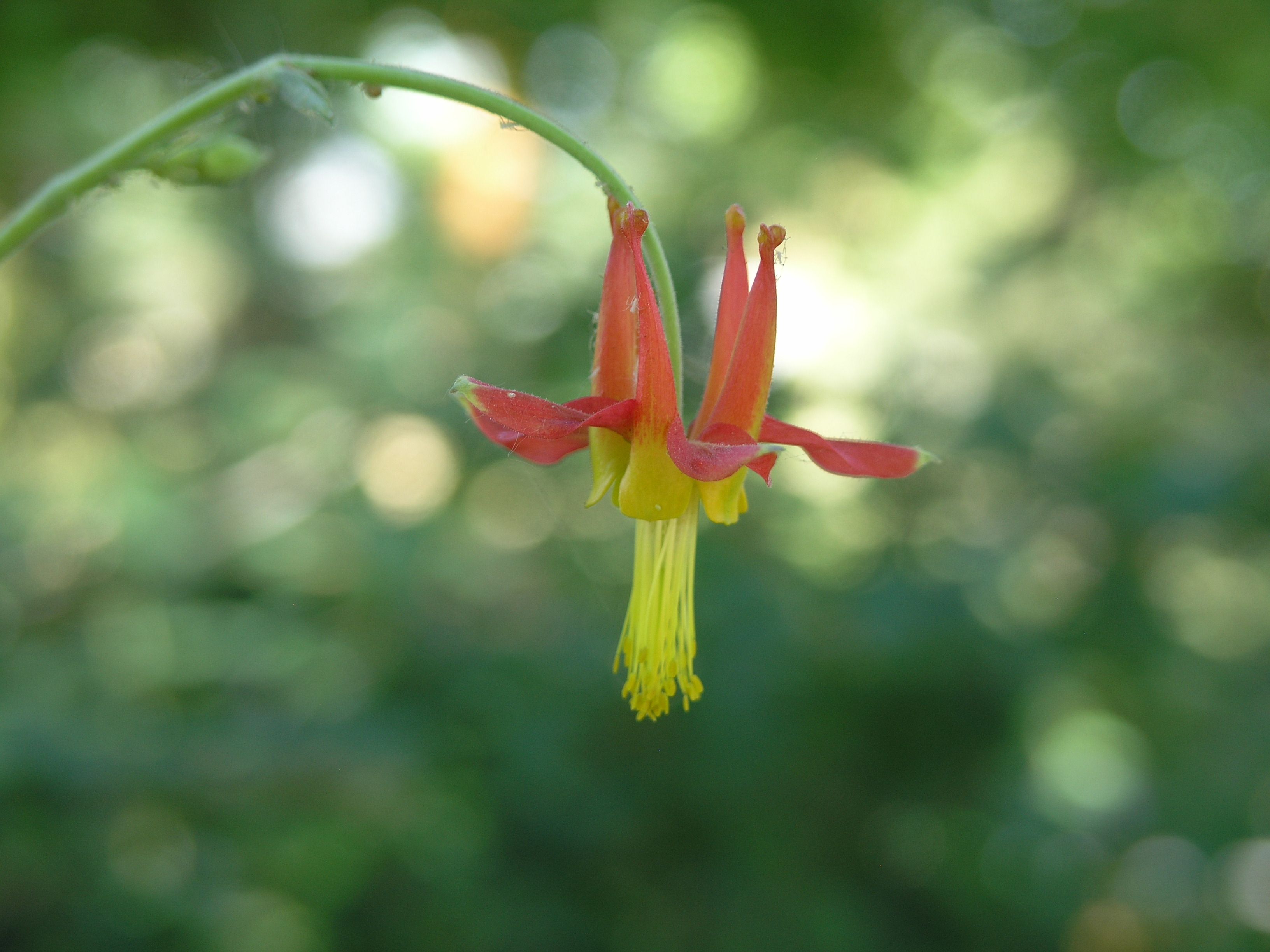
Western Columbine Aquilegia formosa
Airy tall-growing perennial with attractive fern-like foliage. The red-yellow blooms appear in late spring and last into early summer. Native to the western United States. Drooping blossoms are borne on tall stems. Parts of this plant have been used medicinally.
-

Western Redbud Cercis occidentalis
This small tree or large shrub typically has multiple stems and low branches. Beautiful heart-shaped leaves are bronze to purple when new, turning bluish green then yellow in fall. Spring brings magenta buds followed by abundant clusters of rosy-pink flowers. Adaptable to many soil types. Moderately drought tolerant. Marginally hardy.
-

Western Sand Cherry Prunus besseyi
Ornamental shrub with profuse sweet smelling white flowers in spring, followed by large black-red sweet edible fruit. Foliage is silvery green turning to red/purple in autumn. Prefers moist, well drained soil, but can handle hot, dry spots.
-

Western Sundancer Daisy Tetraneuris (syn Hymenoxys) acaulis v. ivesiana
Blooming in late spring and again with the summer rains, Western Sundancer Daisy is a native Intermountain West wildflower. It requires little maintenance and once established is quite xeric. No two flowers are the same as they rise above the short grass-like mounds. Encourage re-seeding by not removing spent blooms until spring. Also known as Four-nerve daisy.
-

Western White Clematis Clematis ligusticifolia
Climbing vine native to the western United States. Profuse white flowers bloom through out the summer. The white puffball seedheads are more conspicous and very attractive. Can be a very vigorous grower. Parts of the plant were used medicinally by some native North American Indian tribes.
-
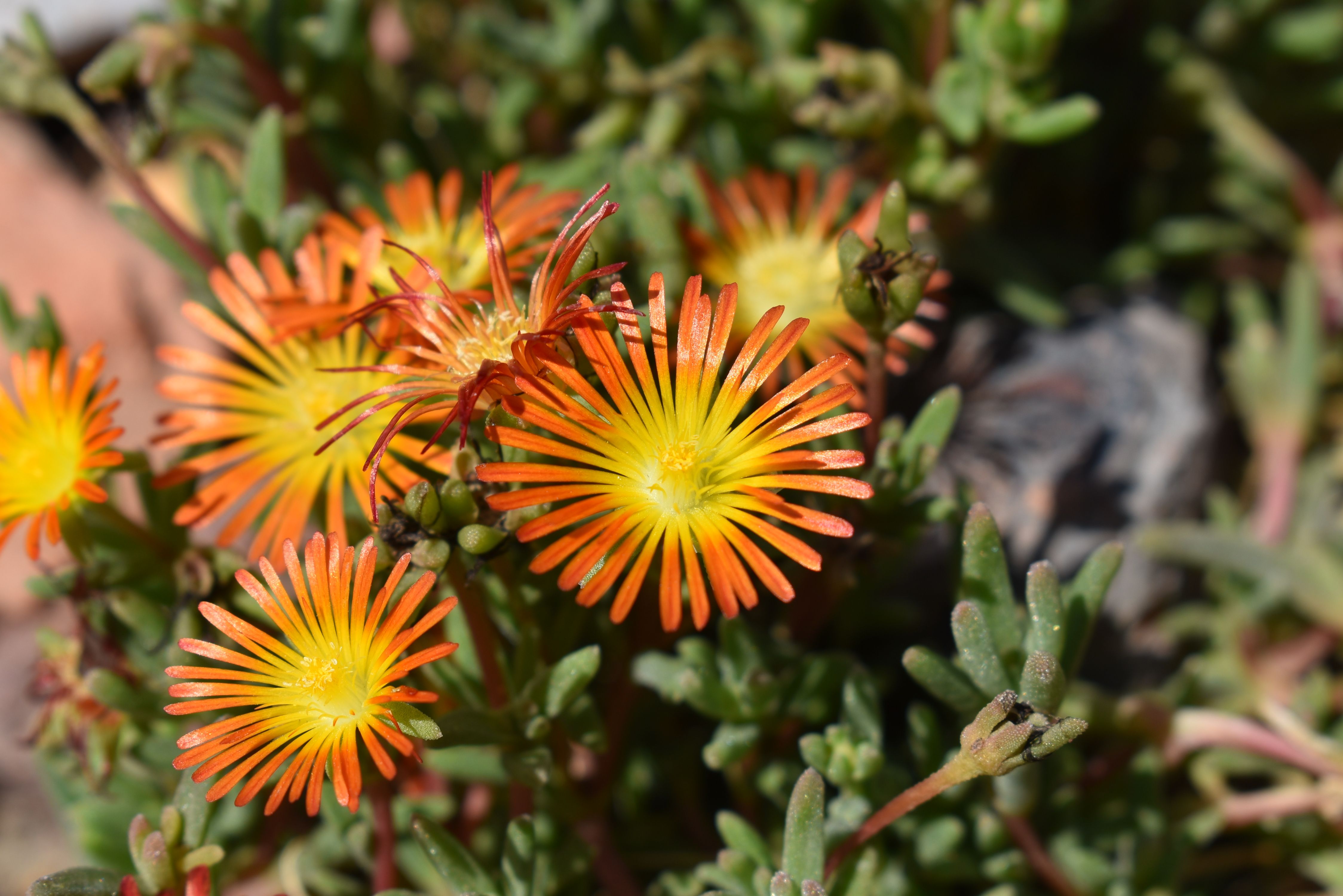
Wheels of Wonder Fire Wonder Ice Plant Delosperma cooperi 'WOWDAY2'
Low mat-forming perennial with semi-evergreen succulent green foliage. A perfect carpet for your sunny garden areas and rock gardens. Orange-petaled flowers have yellow centers that deepen to red, making these tiny flowers stand out. Plant in well-drained soils and water sparingly. Handles heat and drought very well.
-

Whetman Star Single Superstar Dianthus Dianthus 'Wp11Tyr04'
This is a compact, mounding, evergreen perennial of slender, blue-green foliage. In the spring, an abundance of fragrant single flowers begin to bloom. They are dainty in size but vibrant in color. The ruffled blossoms are heavily bright pink with white-pink markings and a deep cherry red eye.
-
Whirling Butterflies Wand Flower Gaura (syn Oenothera) lindheimeri 'Whirling Butterflies'
Upright growing clump-forming perennial. White 4-petaled flowers begin blooming in spring and continue throughout the summer. Flowers resemble small butterflies. Narrow leaves are mid-green. Prefers to grow in full sun. Shade and excessively rich soils will cause the plant to flop. Will tolerate some drought.
-
Whiskey Peak Buckwheat Eriogonum umbellatum 'Whiskey Peak'
Spreading, mat-forming perennial that produces cream to sulfur-yellow ball-like clusters of flowers that become copper-red tinted with age. Begins flowering in early summer and continues throughout the season. Prefers moderate to dry, well drained soil, do not overwater.
-

White Bouquet Butterfly Bush Buddleja davidii 'White Bouquet'
Beautiful medium to large shrub flowering shrub. Can be pruned back to desired height each year, even to the ground if desired. Once established, this plant is tolerant of many conditions. Attracts butterflies and bees. This variety bears fat panicles of white flowers with orange eyes. One of the best performers of the white-flowered varieties.
-
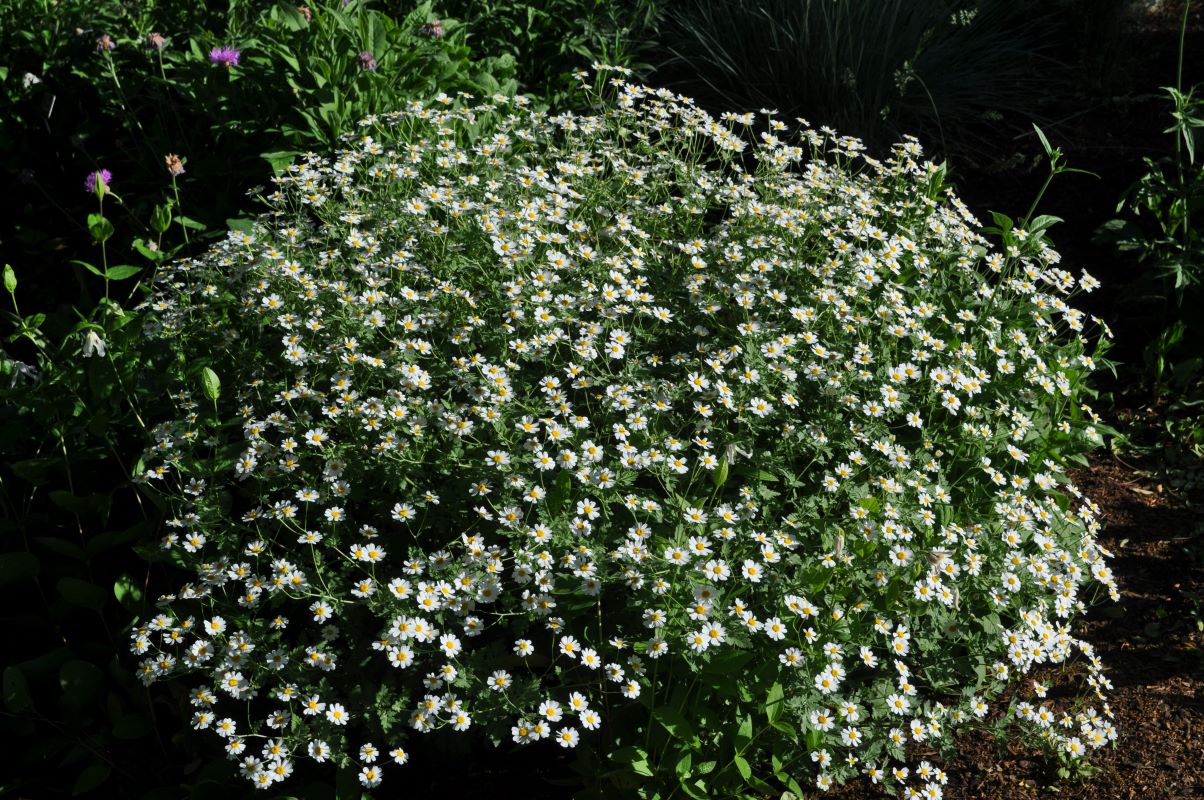
White Bouquet Tansy Tanacetum niveum
Bushy, woody-based perennial with yellow-eyed white daisy flowers that extend above grey-green cut leaf foliage. Drought tolerant once established. Blooms in late spring. Prefers full sun and adaptable to a wide range of soils.
-

White Clips Bellflower Campanula carpatica f. alba 'Weisse Clips'
Small clump forming perennial with mid-green rounded leaves with toothed edges. Stems reaching up to 12" with white upturned bell-shaped flowers. Suitable for planting in rocky areas and does well in any rock garden. Will tolerate shade but blooms the best when planted in full sun.
-
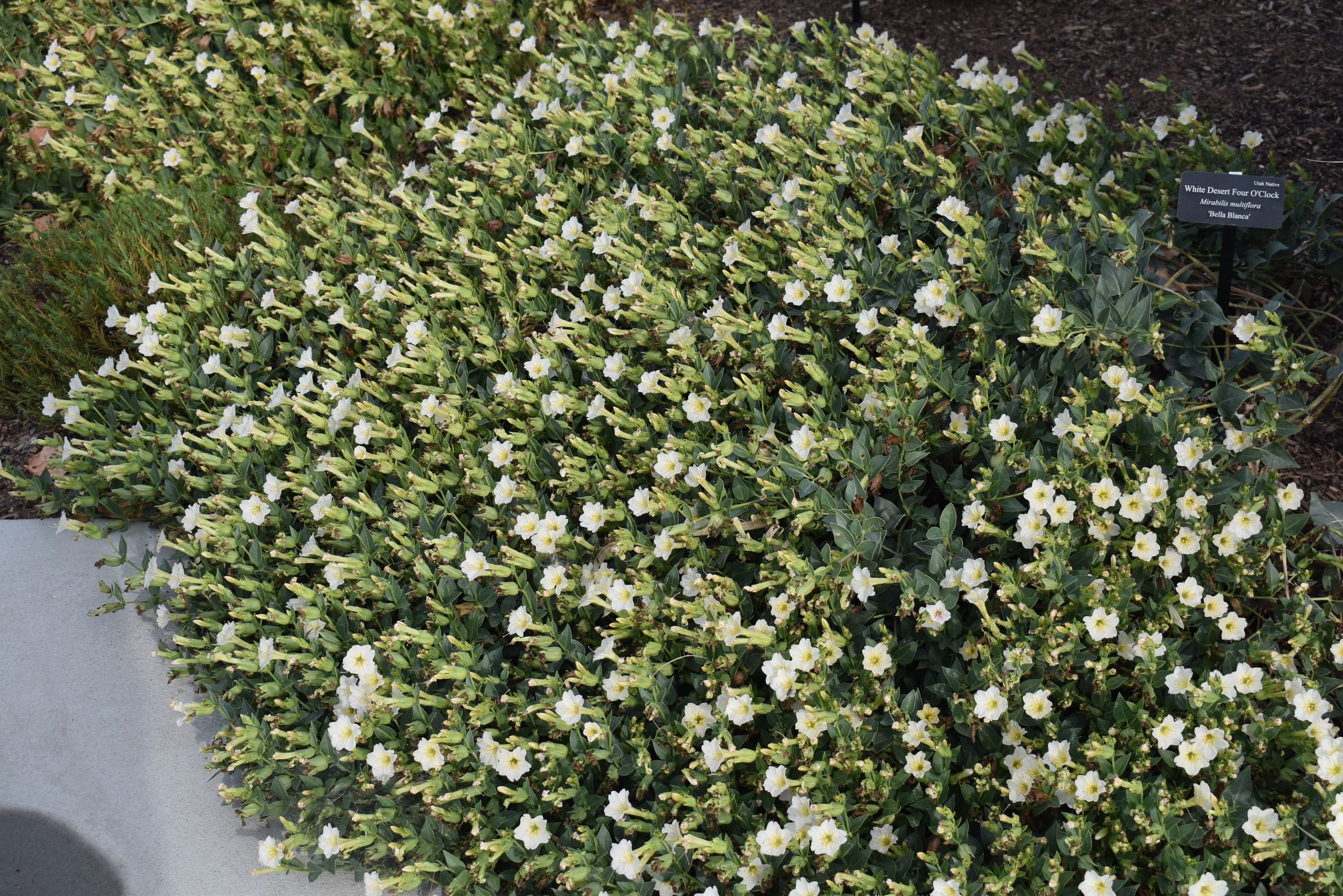
White Desert Four O'Clock Mirabilis multiflora 'Bella Blanca'
This low growing perennial has sage green oval leaves which creates an attractive backdrop for the white, bell shaped blossoms that come in the summer. This white-flowered cultivar comes from Pleasant View, Utah. Spreads from a single taproot, making it easy to clean up at the end of the growing season. Requires little or no additional water and does not perform well if overwatered.
-
White Fir Abies concolor
Tall evergreen tree native to the western United States. Beautiful blue-green needles look similar to Colorado Blue Spruce but are much softer to handle. Grows small red cone-like flower structures in the spring. Difficult to transplant. Tolerates drought once established. Prefers loamy, well-drained, slightly acidic soils.
-
White Flowered Chocolate Vine Akebia quinata 'Shirobana'
A semi-evergreen vine with pretty, light green leaves of 5 leaflets. Spicy-scented white flowers appear in clusters in the spring, followed by 4”-long purple fruit with edible white pulp in late summer. It wraps around and cascades down beautifully on structures—adding movement and interest to trellises and arbors. It can grow vigorously and become invasive in wetter climates. This plant may not produce a lot of fruit without hand pollination.
-

White Glory-of-the-Snow Chionodoxa luciliae 'Alba'
A low-growing bulbous perennial, glory-of-the-snow is one of the first flowers to make an appearance in the spring, often when snow is still on the ground. It's flowers are six-petaled and upturned. This variety blooms white. Lily-like leaves are green and disappear as the weather warms, along with the flowers.
-

White Jupiter's Beard Centranthus ruber 'Albus'
Clump forming perennial with mid-green fleshy leaves that are lance-shaped and waxy. Bears cymes of star-shaped white flowers beginning in the late-spring. Sporadic flowering may last until late-summer. Does well in alkaline and poor soils. May become too large and seed aggressively if the soil is too fertile or it receives too much water. Self-sows freely.
-

White Meidiland Shrub Rose Rosa 'Meicoublan'
Vigorous, low-growing, groundcover rose. Profuse pure white, double-petalled flowers, 2" wide, bloom throughout the summer. Glossy dark-green almond-shaped leaves grow on weeping branches. Plant in masses or as hedges. Disease resistant and very care-free.
-
White Mulberry Morus alba
Large, spreading, fast-growing deciduous tree. Leaves are deeply lobed and show no significant fall color. Bark is light grey and ridged. Works great to provide shade but requires room to spread. Shallow roots can lift sidewalks and cement. Avoid fruited varieties as they can become quite messy. Tolerates some drought and various soil conditions.
-

White Nancy Spotted Deadnettle Lamium maculatum 'White Nancy'
Low-growing, spreading, shade-loving plant with rounded silver-green to white leaves with serrated edges and green margins. Produces clusters of white flowers in mid to late-spring. Will spread in areas where it is happy. Handles shade and some drought. Performs best with plenty of water.
-

White Nugget Ice Plant Delosperma basuticum 'White Nugget'
This is an evergreen mat forming groundcover plant. In the summer, bright, snow white flowers appear on top of the rubbery, bright green, succulent leaves. The daisy-like flowers have a big flush in the early summer and then will sporadically bloom through the rest of the season.
-

White Sea Thrift Armeria maritima 'Alba'
Neat evergreen tufts of green grass-like foliage that spreads into a thick mat. 8" tall stems bear profuse, spherical white flowerheads that are 1" wide and begin blooming in late spring. Deadheading will extend flowering time. Prefers full sun.
-
White Shield Osage Orange Maclura pomifera 'White Shield'
This thornless and fruitless cultivar of the tough Midwest native is also a great choice for Intermountain landscapes. Glossy green leaves grow on cinnamon colored branches. It's a better choice for landscapes since the thorns of the species make being anywhere in the vicinity of it a risky business. It is very tolerant of drought and heat.
-
White Stonecrop Sedum album
A low growing, creeping evergreen sedum. The tiny, oblong succulent leaves grow densely and turn slightly reddish brown come fall and winter. Small, star shaped, white blossom clusters bloom on slender stems that rise above the foliage.
-
White Swan Coneflower Echinacea purpurea 'White Swan'
Produces beautiful white daisy-like flowers 4.5" across on upright stems with dark green foliage. Blooms throughout the summer. Deadheading prolongs flowering time. Very easy to grow and adaptable to any soil. Prefers full sun to part shade. Attracts butterflies.
-
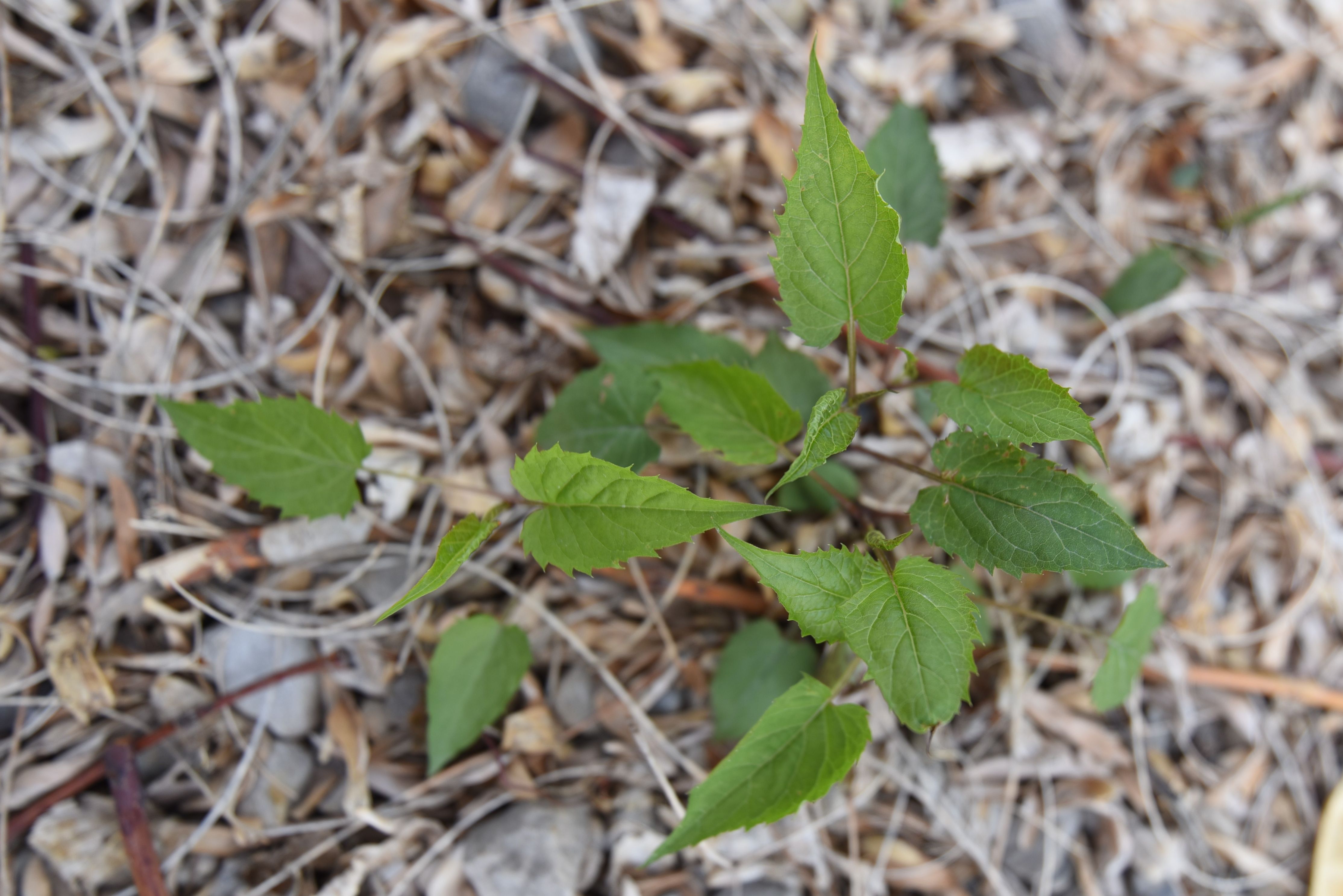
White Wood Aster Eurybia divaricata
The White Wood Aster (formerly named Aster divaricatus and sometimes called White Woodland Aster) is a common sight in dry open woods in the eastern US, where it is native. Here in Utah, its tolerance of dry, shallow soil and heavy shade make it an unfussy choice for informal woodland-style gardens. This late-blooming wildflower has delicate white petals arranged in small, daisy-shaped rays around yellow centers. Loose clusters of flowers bloom above contrasting dark stems and serrated, heart-shaped green leaves.
-

White-Stem Rubber Rabbitbrush Ericameria nauseosa var. hololeuca
An excellent small deciduous shrub native to the western United States. Produces thick clusters of tiny golden flowers in late-summer, which attract a variety of pollinators. Aromatic gray-green leaves grow on waxy green stems and contrast nicely with other colors of plants even when not in bloom. Deep roots and leaf color account, in part, for its drought tolerance. Requires no additional watering once established and tolerates many soil types. Pruning will keep it looking tidy in the residential landscape.
-

Whitewater Speedwell Veronica 'Whitewater'
This groundcover speedwell is covered with tiny white flowers in early-spring to spring. Dark-green, round leaves turn burgundy in the winter. It grows best in full sun and with minimal water.
-
Wild Bergamot Monarda fistulosa
Also known as Bee Balm, this native perennial has large lavender-pink flowers that bloom in loose firework-shaped clusters. The blossoms sit at the top of tall stems and are loved by butterflies and hummingbirds. Aromatic green foliage grows along the square stems, forming moderately sized clumps. May spread and re-seed, but not excessively.
-
Wild Ginger Asarum canadense
Wild ginger is a shade wildflower native to the Northeast and Midwest, commonly grown for its attractive heart-shaped leaves, which appear to grow straight from the ground with no obvious stem. The leaves are deeply veined and often curl into cups. Spreads to form a lush groundcover when planted en masse. The flowers are small, three-petalled purplish-brown cups that bloom in spring but are often covered by the leaves. Although not related to culinary ginger or used in cooking, the roots smell gingery.
-
Wild Indigo Baptisia australis
A gently spreading, upright perennial whose deep green, clover-like leaves and tall spikes of deep blue lupine-like flowers make it an excellent choice for many styles of garden. Charcoal-black seed pods develop in late summer and are often used in flower arrangements when dried. Has a deep taproot which permits it to withstand dry conditions and heat.
-

Wild Thing Autumn Sage Salvia greggii 'Wild Thing'
This Salvia has small, rounded leaves that are semi-evergreen and fragrant. It produces beautiful hot pink blooms in early summer through fall. The tubular flowers attract hummingbirds and butterflies. A long blooming plant that is a great addition to a sunny planting bed. It requires very little water once established and is low maintenance.
-
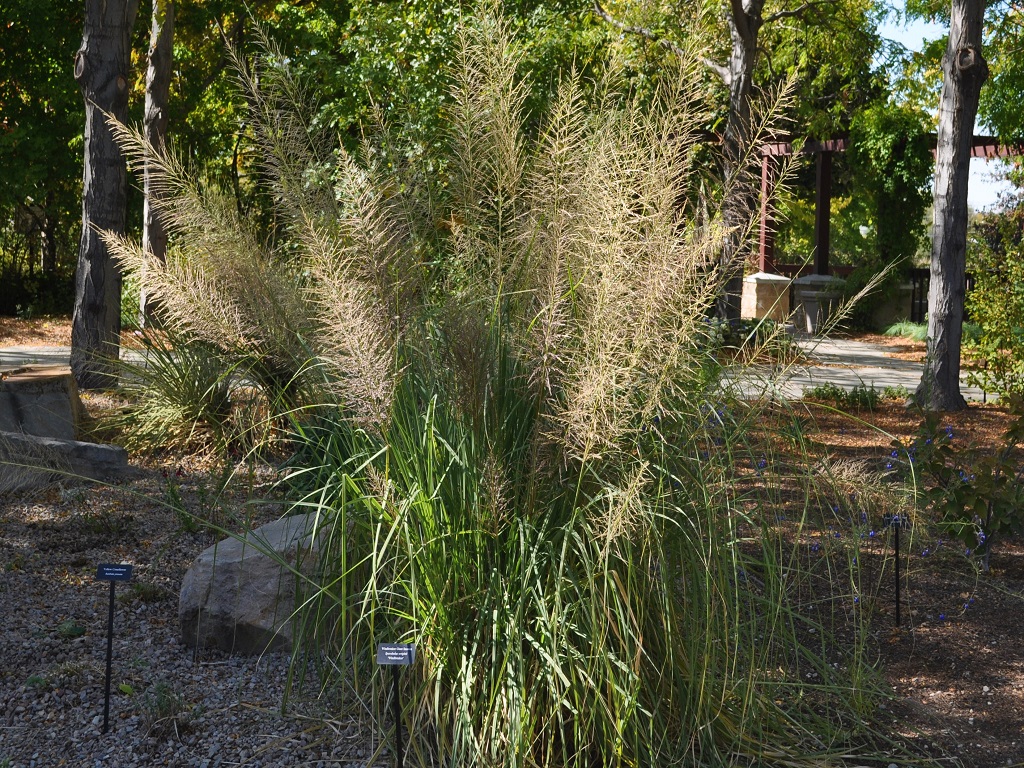
Windbreaker Giant Sacaton Sporobolus wrightii 'Windbreaker'
Originally bred as a windbreaker for agricultural fields, this large ornamental grass works great in western landscapes. Tall, narrow leaves grow in a large clump with blonde seed heads appearing in late-summer. Cut back in the spring before new growth appears.
-
Windflower Anemone blanda
Windflower is a tuberous plant with daisy-like flowers that vary from white to purples, blues and pinks. Leaves are highly dissected and add to the loveliness of this brief spring bloomer. Great for adding that first pop of color to perennial beds that are otherwise bare in early spring. Prefers light shade and will gently spread over time in ideal conditions.
-

Winecraft Gold Smoketree Cotinus coggygria 'MINCOJAU3'
A boldly bright deciduous shrub or small multi-stemmed tree which will instantly add interest and beauty to a landscape. Its natural shape is a dense oval with round foliage that begins a sunny orange, takes on a touch of gold and finally matures to a beautiful chartreuse for the remainder of the season. On top of the attractive foliage, clouds of green flower clusters come on in early summer. They eventually turn into the classic pink “smoke” plumes that are associated with this plant.
-

Winter Gem Boxwood Buxus sinica var. insularis 'Winter Gem'
Winter Gem can be used as a hedge or a specimen plant. It has a dense, compact and mounded habit with small, shiny green leaves. During cold winters, the leaves and tender stems often suffer from winter burn, especially in exposed conditions. Affected branches must be pruned out in the spring. The spring blooms are insignificant, but fragrant. They are low maintenance but can take a heavy pruning.
-
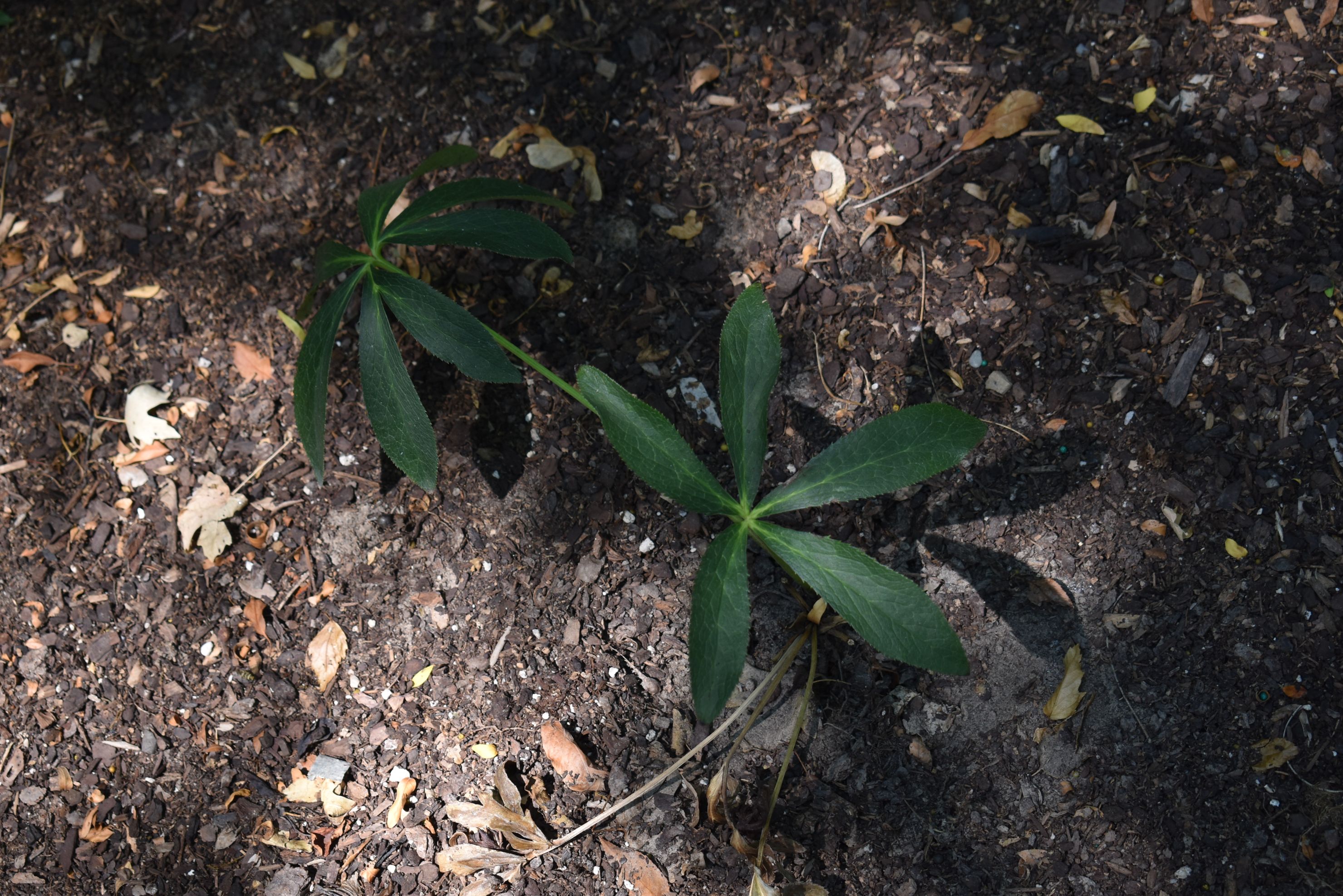
Winter Jewels Onyx Odyssey Lenten Rose Helleborus 'Onyx Odyssey'
‘Onyx Odyssey’ will create stunning and striking interest in those shady parts of the landscape. Dark purple to nearly black, large, frilly blossoms sit atop upright, slender stems and droop over dark green foliage. This evergreen perennial will begin to shine in the late winter and will continue through spring.
-

Wisley Primrose Sun Rose Helianthemum 'Wisley Primrose'
Low-growing, evergreen, shrubby perennial. Small, silvery green, lance-shaped leaves are downy. Bears profuse primrose yellow rose-shaped flowers in late-spring to early-summer. Grows well as a groundcover or in rock gardens. Presents a very stunning show when covered with flowers.
-

Wisteria Lane Butterfly Bush Buddleja davidii 'Wisteria Lane'
A round, deciduous shrub with cascades of sweet-scented, delicate lilac-purple blossoms that drape from the tips of the branches, creating a wisteria-like waterfall effect. Like other butterfly bushes, 'Wisteria Lane' blooms later in the summer, offering a long-lasting display throughout the season. The flowers work well for cut flower arrangements.
-
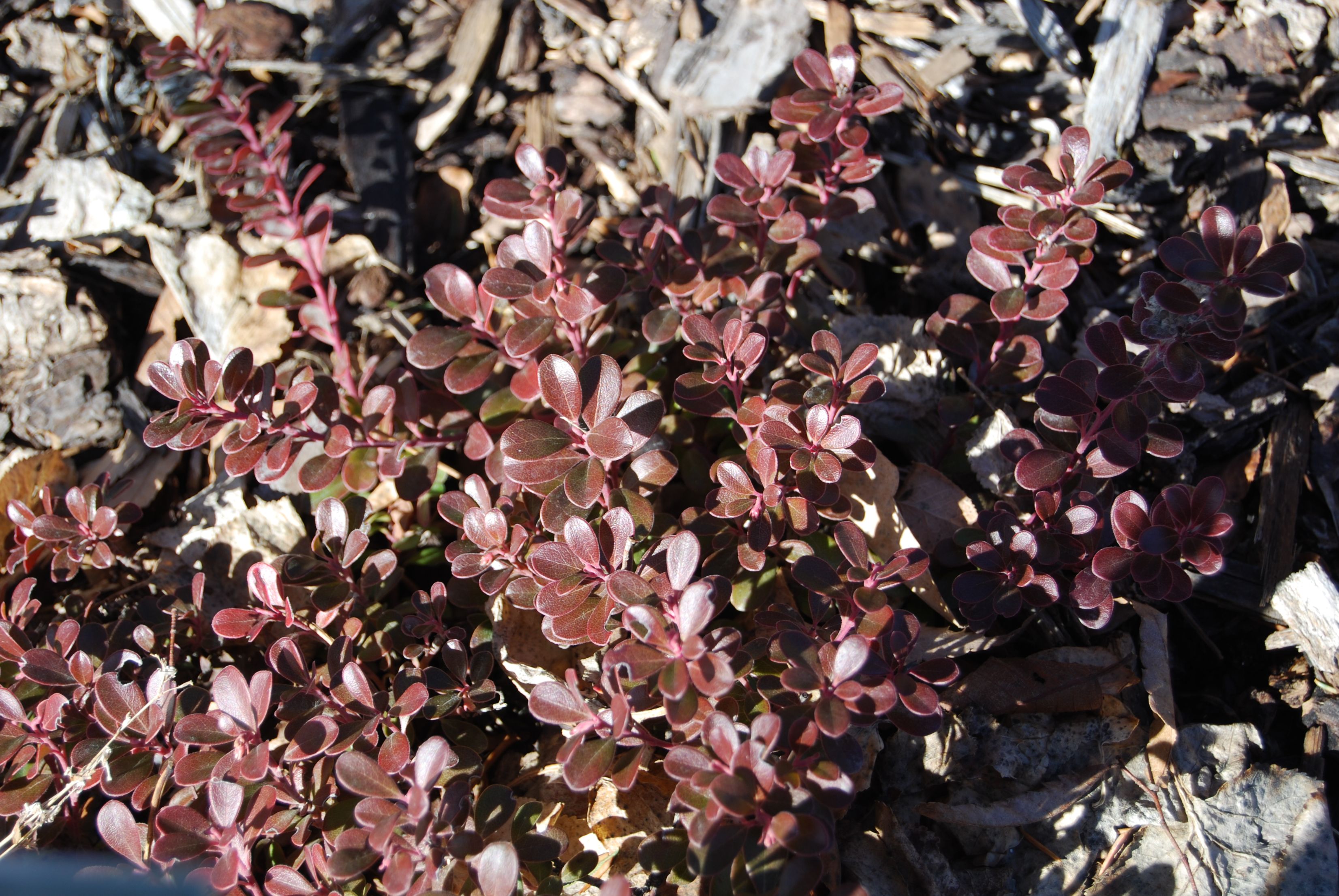
Wood's Compact Kinnikinnick Arctostaphylos uva-ursi 'Wood's Compact'
Low-growing mat-forming evergreen shrub that is typically smaller than the species. Shiny leathery green leaves may become reddish-brown during the winter. White flowers tinged with pink appear in spring. Red berries are eaten by birds but not recommended for human consumption. Extremely winter hardy. Tolerates poor soil.
-
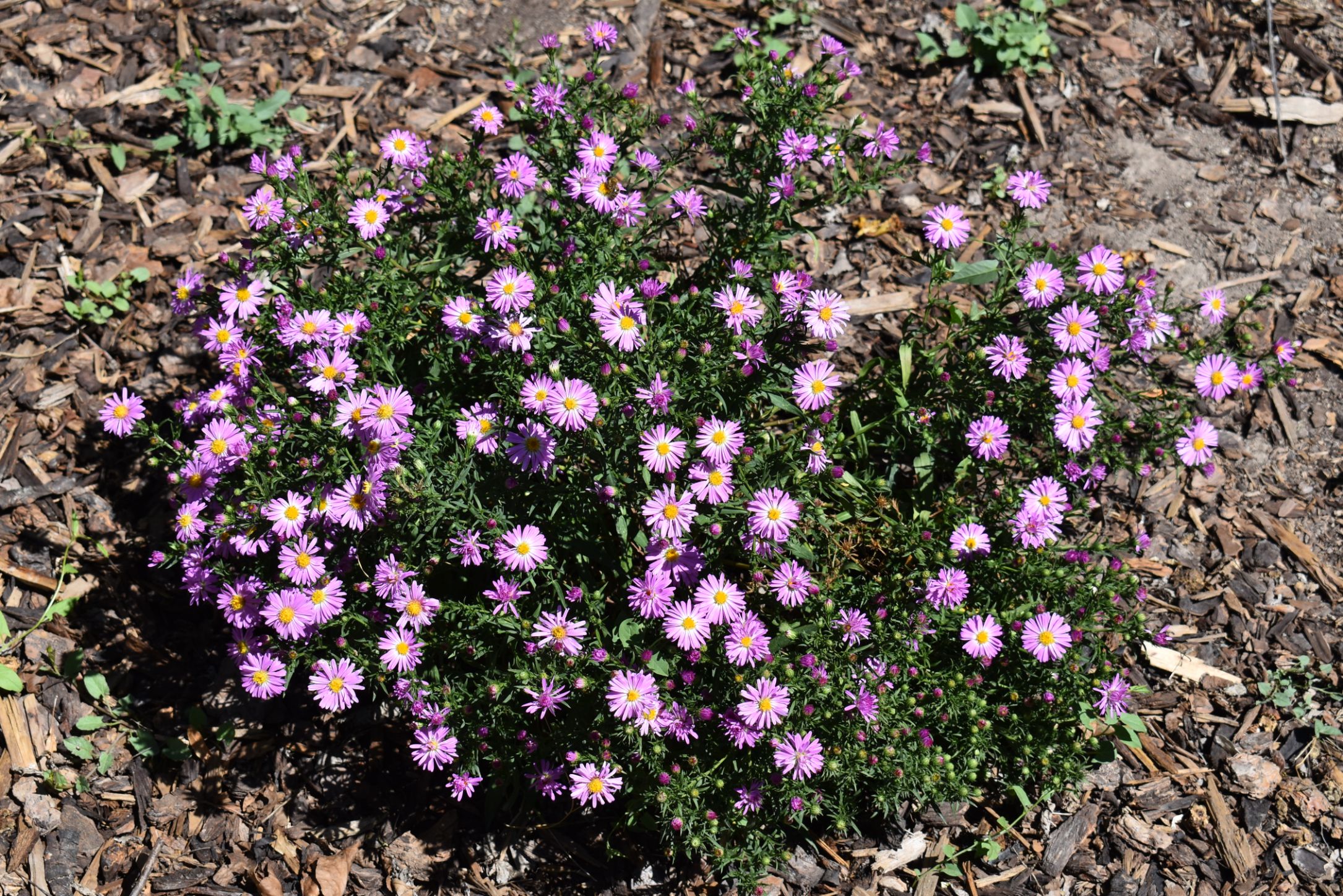
Wood's Pink Aster Aster 'Wood's Pink'
Part of the Wood Aster Series, this clump forming perennial blooms pink daisy-like flowers in late-summer to fall. It prefers full sun and blooms best with plenty of sunshine.
-
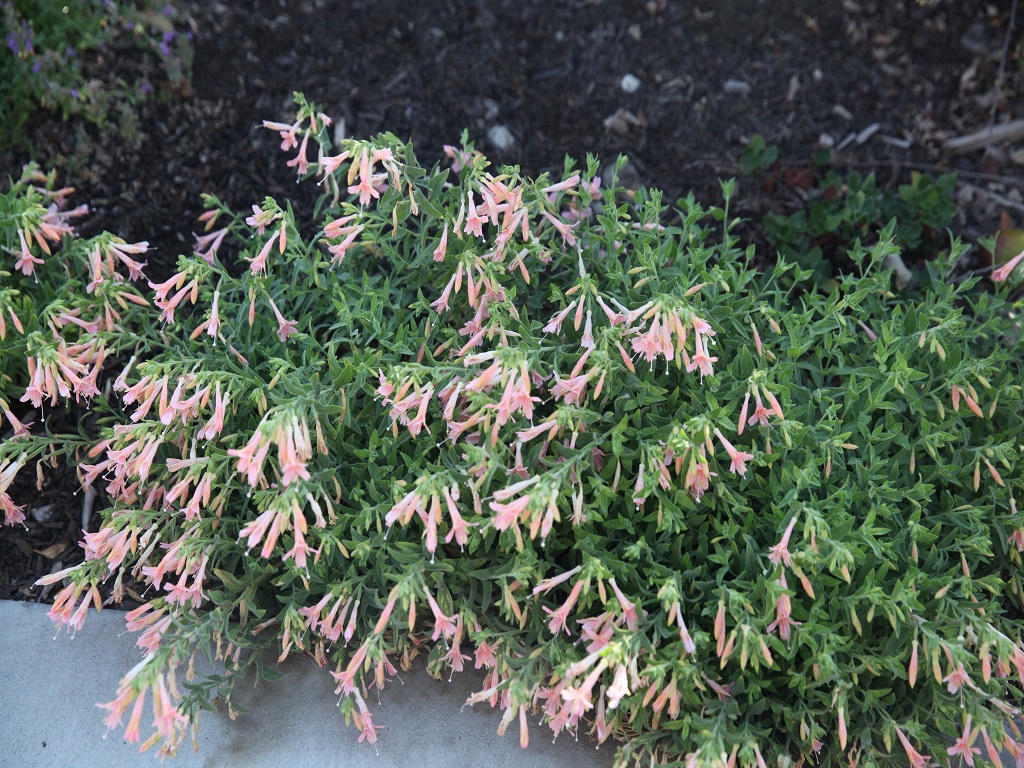
Woody's Peach Surprise Fire Chalice Epilobium (syn Zauschneria) garrettii 'Woody's Peach Surprise'
Low-growing herbaceous perennial. Plant Select winner for 2001. Unlike other hummingbird flowers, this one is more compact. Peach tubular flowers bloom throughout the summer. Attracts hummingbirds. Good choice for planting over rock walls.
-
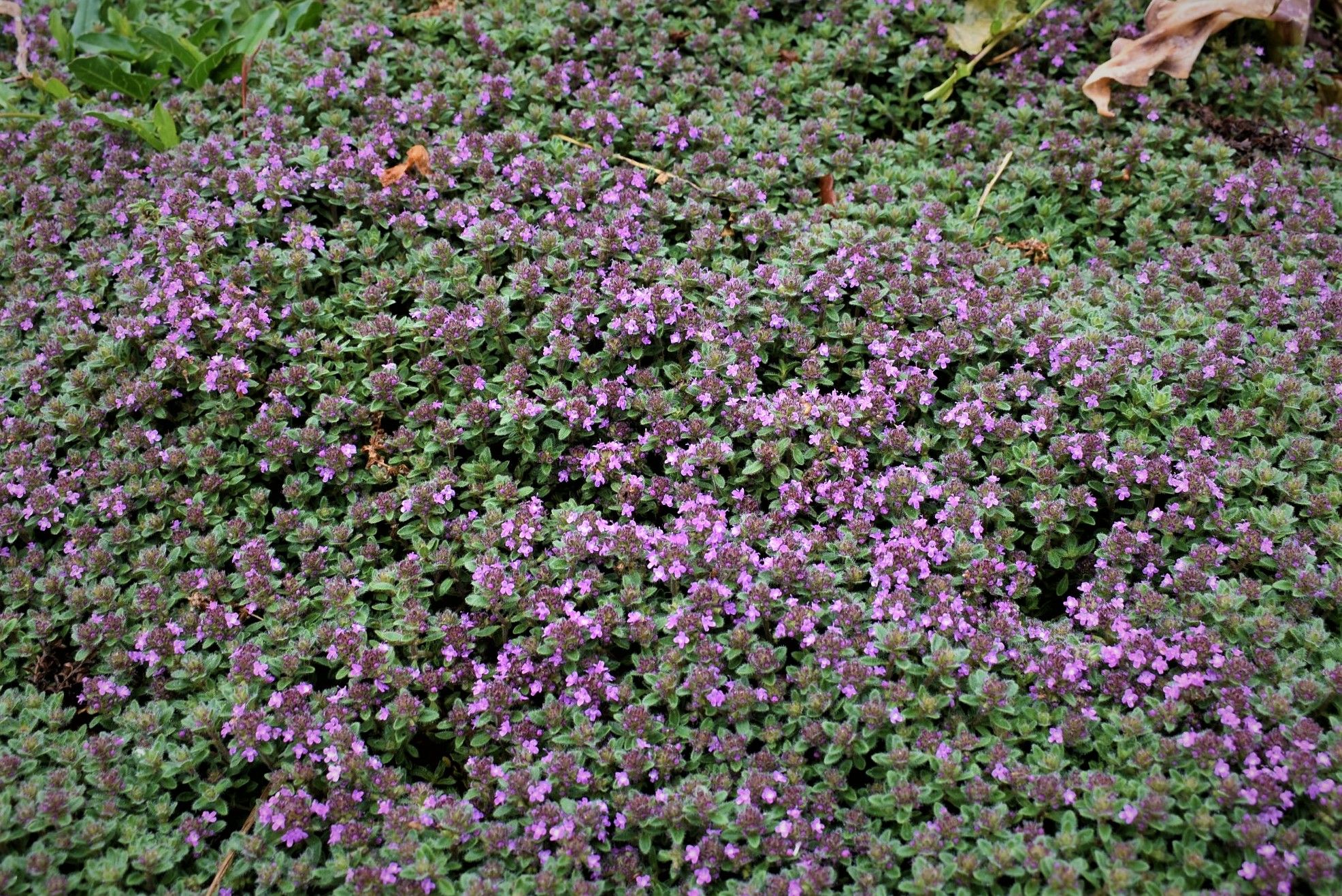
Woolly Thyme Thymus pseudolanuginosus
A low-growing, creeping, woody-based perennial that thrives in rock gardens and between paving stones. The hairy, grey-green leaves form a soft and inviting groundcover, with pink flowers appearing sparsely in summer. The leaves are aromatic but unsuitable for culinary use. Tolerant of infertile soils and drought, and prefers sunny locations.
-

Wrinkle in Time Hosta Hosta 'Wrinkle in Time'
This cultivar of Hosta has wavy leaf margins that start out buttery-yellow in the spring and turn white in summer, with streaks leading into rich green centers. Adds great texture to shady parts of the garden and pairs well with other varieties of Hosta. Tall spikes of pale purple, bell-shaped flowers are a bonus.
-

Walker's Low Catmint
Member of the mint family. Despite its name it is not low-growing. Stunning dark lavender blue flowers provide great spring interest. If dead-headed or sheared will flower again in late-summer. Clumps of gray-green fragrant foliage provide attraction when not in bloom. This variety does not reseed.
Nepeta racemosa 'Walker's Low'
Mature Size: 2-2.5' tall x 2.5-3' wide
-

Wall Germander
A shrubby, semi-evergreen perennial with small dark green leaves, also known as Wall Germander. It bears pale pink to deep purple flowers in late summer. Small oak-like leaves are dark green and glossy on top and gray underneath. Cut to within an inch of ground level in spring, to maintain a compact habit. Prefers full sun.
Teucrium chamaedrys
Mature Size: 12-20" tall x 12" wide
-

Wasatch Fire Fire Chalice
Low-growing herbaceous perennial. Unlike other hummingbird flowers, this one is more compact. Bright red-orange tubular flowers bloom throughout the summer. Attracts hummingbirds. Requires moderate amounts of water. Good choice for planting over rock walls.
Epilobium (syn Zauschneria) garrettii 'Wasatch Fire'
Mature Size: 3-4" tall x 15-20" wide
-
Washington Hawthorn
Small to medium pyramidally growing deciduous tree. Thorny limbs are covered with pure white flowers in the spring followed by bright red fruit that is preferred by birds. Glossy green leaves turn bright red in the fall. Works well as a specimen plant or as a screen. Can be difficult to work with due to the thorns. Tolerant of many soils and drought.
Crataegus phaenopyrum
Mature Size: 20-35' tall x 20-25' wide
-
Wavyleaf Oak
Tall, deciduous shrub native to Utah. Wavyleaf Oak is a naturally-occurring hybrid of Gambel Oak (Q. gambelii) and Shrub Live Oak (Q. turbinella). Elliptical leaves have wavy edges and are dark blue-green above and dull green and hairy underneath. May be difficult to find for sale. Smaller and more drought tolerant than the similar-looking White Oak.
Quercus x undulata
Mature Size: 10-20' tall x 10-15' wide
-

Wee One Lavender
This is a dwarf lavender that is great for adding fragrance to small spaces. It has silvery, gray-green leaves and compact heads of lavender to blue flowers. This lavender is tolerant of many soil types. It likes well-drained soils and does not like to be overwatered.
Lavandula angustifolia 'Wee One'
Mature Size: 8-10" tall x 12-15" wide
-

Weeping Blue Atlas Cedar
Weeping form of Blue Atlas Cedar. Has irregularly shaped crown and will depend on how the tree was trained. Blue-green needles, silvery bark and a unique shape make this small tree stand out. Excellent specimen plant.
Cedrus atlantica 'Glauca Pendula'
Mature Size: 15' tall x 10' wide
-
Weeping Norway Spruce
Slow-growing irregularly shaped evergreen conifer. Pendulous branches weep off of a fairly straight leader. Short stiff dark green needles, reddish-brown bark, and light brown cones make this plant a beautiful centerpeice for any landscape. May require some staking to help it attain a desirable form.
Picea abies 'Pendula'
Mature Size: 8-15' tall x 10' wide
-

Weeping Peashrub
Large deciduous shrub native to Manchuria and Siberia. 'Pendula' is typically grown with a single stem to give the appearance of a small weeping tree. Cascading branches with coarse dark green foliage make this an excellent accent plant. Yellow flowers bloom in May turning to green pea-like pods. As the pods age, they turn brown and split open flinging seeds. Tolerant of extreme cold, drought, and heavy soils. Siberian Peashrub is known to be invasive in the midwestern US.
Caragana arborescens 'Pendula'
Mature Size: 6-8' tall x 4-8' wide
-
Weeping White Spruce
The weeping white spruce is a stately evergreen tree that grows tall but stays very narrow with attractive drooping branches. Gray-green needles grow up to 3/4 of an inch. It prefers acidic soils but is tolerant of other soils.
Picea glauca 'Pendula'
Mature Size: 40' tall x 8' wide
-

Weihenstephaner Gold Stonecrop
Low-growing, clump-forming succulent. Glossy green leaves are inversely lance-shaped and toothed at the tips. Bears profuse, star-shaped, bright yellow flowers in late-summer turning to orange-red seed heads. Plant in well-drained soils.
Sedum kamtschaticum var. floriferum 'Weihenstephaner Gold'
Mature Size: 4-6" tall x 4-12" wide
-
Wells Dolly's Choice Mugo Pine
A relatively small, upright, cone-shaped dwarf conifer with the open, upright growing form typical of mugo pines. The dark green 2 inch long needles are borne in pairs. Best planted in small areas where evergreen interest is desirable. Tolerant of many soil types. Plant in well drained soils. Can tolerate some drought once established.
Pinus mugo fastigiata 'Wells Dolly's Choice'
Mature Size: 12-13' tall x 5' wide
-

West Texas Grass Sage
The cobalt-blue flowers of this sage bloom along tall stalks and continue through frost, complemented by fine textured foliage that is long and grass-like. It's very cold hardy and attracts hummingbirds.
Salvia reptans
Mature Size: 36" tall x 18" wide
-

Westerland Climbing Rose
This vigorous climbing rose has clusters of large, apricot-orange double flowers with a sweet citrusy fragrance. Blooming begins in late-spring and will last all summer. Removing spent blooms will increase the number of blooms. Bright green glossy leaves grow on stiff stems.
Rosa 'Korwest'
Mature Size: 6-8' tall x 4' wide
-

Western Columbine
Airy tall-growing perennial with attractive fern-like foliage. The red-yellow blooms appear in late spring and last into early summer. Native to the western United States. Drooping blossoms are borne on tall stems. Parts of this plant have been used medicinally.
Aquilegia formosa
Mature Size: 24-36" tall x 18" wide
-

Western Redbud
This small tree or large shrub typically has multiple stems and low branches. Beautiful heart-shaped leaves are bronze to purple when new, turning bluish green then yellow in fall. Spring brings magenta buds followed by abundant clusters of rosy-pink flowers. Adaptable to many soil types. Moderately drought tolerant. Marginally hardy.
Cercis occidentalis
Mature Size: 15-25' tall and wide
-

Western Sand Cherry
Ornamental shrub with profuse sweet smelling white flowers in spring, followed by large black-red sweet edible fruit. Foliage is silvery green turning to red/purple in autumn. Prefers moist, well drained soil, but can handle hot, dry spots.
Prunus besseyi
Mature Size: 6' tall x 6' wide
-

Western Sundancer Daisy
Blooming in late spring and again with the summer rains, Western Sundancer Daisy is a native Intermountain West wildflower. It requires little maintenance and once established is quite xeric. No two flowers are the same as they rise above the short grass-like mounds. Encourage re-seeding by not removing spent blooms until spring. Also known as Four-nerve daisy.
Tetraneuris (syn Hymenoxys) acaulis v. ivesiana
Mature Size: 6-12" tall x 6-9" wide
-

Western White Clematis
Climbing vine native to the western United States. Profuse white flowers bloom through out the summer. The white puffball seedheads are more conspicous and very attractive. Can be a very vigorous grower. Parts of the plant were used medicinally by some native North American Indian tribes.
Clematis ligusticifolia
Mature Size: 20' tall x 8' wide
-

Wheels of Wonder Fire Wonder Ice Plant
Low mat-forming perennial with semi-evergreen succulent green foliage. A perfect carpet for your sunny garden areas and rock gardens. Orange-petaled flowers have yellow centers that deepen to red, making these tiny flowers stand out. Plant in well-drained soils and water sparingly. Handles heat and drought very well.
Delosperma cooperi 'WOWDAY2'
Mature Size: 4-8" tall x 20-24" wide
-

Whetman Star Single Superstar Dianthus
This is a compact, mounding, evergreen perennial of slender, blue-green foliage. In the spring, an abundance of fragrant single flowers begin to bloom. They are dainty in size but vibrant in color. The ruffled blossoms are heavily bright pink with white-pink markings and a deep cherry red eye.
Dianthus 'Wp11Tyr04'
Mature Size: 6" tall and 8" wide
-
Whirling Butterflies Wand Flower
Upright growing clump-forming perennial. White 4-petaled flowers begin blooming in spring and continue throughout the summer. Flowers resemble small butterflies. Narrow leaves are mid-green. Prefers to grow in full sun. Shade and excessively rich soils will cause the plant to flop. Will tolerate some drought.
Gaura (syn Oenothera) lindheimeri 'Whirling Butterflies'
Mature Size: 24-36" tall and wide
-
Whiskey Peak Buckwheat
Spreading, mat-forming perennial that produces cream to sulfur-yellow ball-like clusters of flowers that become copper-red tinted with age. Begins flowering in early summer and continues throughout the season. Prefers moderate to dry, well drained soil, do not overwater.
Eriogonum umbellatum 'Whiskey Peak'
Mature Size: 6-12" tall x 36" wide
-

White Bouquet Butterfly Bush
Beautiful medium to large shrub flowering shrub. Can be pruned back to desired height each year, even to the ground if desired. Once established, this plant is tolerant of many conditions. Attracts butterflies and bees. This variety bears fat panicles of white flowers with orange eyes. One of the best performers of the white-flowered varieties.
Buddleja davidii 'White Bouquet'
Mature Size: 10-12' tall x 8' wide
-

White Bouquet Tansy
Bushy, woody-based perennial with yellow-eyed white daisy flowers that extend above grey-green cut leaf foliage. Drought tolerant once established. Blooms in late spring. Prefers full sun and adaptable to a wide range of soils.
Tanacetum niveum
Mature Size: 18" tall x 30" wide
-

White Clips Bellflower
Small clump forming perennial with mid-green rounded leaves with toothed edges. Stems reaching up to 12" with white upturned bell-shaped flowers. Suitable for planting in rocky areas and does well in any rock garden. Will tolerate shade but blooms the best when planted in full sun.
Campanula carpatica f. alba 'Weisse Clips'
Mature Size: 12" tall x 12-24" wide
-

White Desert Four O'Clock
This low growing perennial has sage green oval leaves which creates an attractive backdrop for the white, bell shaped blossoms that come in the summer. This white-flowered cultivar comes from Pleasant View, Utah. Spreads from a single taproot, making it easy to clean up at the end of the growing season. Requires little or no additional water and does not perform well if overwatered.
Mirabilis multiflora 'Bella Blanca'
Mature Size: 12-36" tall and 18-48" wide
-
White Fir
Tall evergreen tree native to the western United States. Beautiful blue-green needles look similar to Colorado Blue Spruce but are much softer to handle. Grows small red cone-like flower structures in the spring. Difficult to transplant. Tolerates drought once established. Prefers loamy, well-drained, slightly acidic soils.
Abies concolor
Mature Size: 40-50' tall x 20-30' wide
-
White Flowered Chocolate Vine
A semi-evergreen vine with pretty, light green leaves of 5 leaflets. Spicy-scented white flowers appear in clusters in the spring, followed by 4”-long purple fruit with edible white pulp in late summer. It wraps around and cascades down beautifully on structures—adding movement and interest to trellises and arbors. It can grow vigorously and become invasive in wetter climates. This plant may not produce a lot of fruit without hand pollination.
Akebia quinata 'Shirobana'
Mature Size: 15-20' in length
-

White Glory-of-the-Snow
A low-growing bulbous perennial, glory-of-the-snow is one of the first flowers to make an appearance in the spring, often when snow is still on the ground. It's flowers are six-petaled and upturned. This variety blooms white. Lily-like leaves are green and disappear as the weather warms, along with the flowers.
Chionodoxa luciliae 'Alba'
Mature Size: 6-8" tall x 4-6" wide
-

White Jupiter's Beard
Clump forming perennial with mid-green fleshy leaves that are lance-shaped and waxy. Bears cymes of star-shaped white flowers beginning in the late-spring. Sporadic flowering may last until late-summer. Does well in alkaline and poor soils. May become too large and seed aggressively if the soil is too fertile or it receives too much water. Self-sows freely.
Centranthus ruber 'Albus'
Mature Size: 18-36" tall x 12-24" wide
-

White Meidiland Shrub Rose
Vigorous, low-growing, groundcover rose. Profuse pure white, double-petalled flowers, 2" wide, bloom throughout the summer. Glossy dark-green almond-shaped leaves grow on weeping branches. Plant in masses or as hedges. Disease resistant and very care-free.
Rosa 'Meicoublan'
Mature Size: 2-3' tall x 5-6' wide
-
White Mulberry
Large, spreading, fast-growing deciduous tree. Leaves are deeply lobed and show no significant fall color. Bark is light grey and ridged. Works great to provide shade but requires room to spread. Shallow roots can lift sidewalks and cement. Avoid fruited varieties as they can become quite messy. Tolerates some drought and various soil conditions.
Morus alba
Mature Size: 20-30' tall x 30-45' wide
-

White Nancy Spotted Deadnettle
Low-growing, spreading, shade-loving plant with rounded silver-green to white leaves with serrated edges and green margins. Produces clusters of white flowers in mid to late-spring. Will spread in areas where it is happy. Handles shade and some drought. Performs best with plenty of water.
Lamium maculatum 'White Nancy'
Mature Size: 6" tall x 8-12" wide
-

White Nugget Ice Plant
This is an evergreen mat forming groundcover plant. In the summer, bright, snow white flowers appear on top of the rubbery, bright green, succulent leaves. The daisy-like flowers have a big flush in the early summer and then will sporadically bloom through the rest of the season.
Delosperma basuticum 'White Nugget'
Mature Size: 1-2" tall and 6-8" wide
-

White Sea Thrift
Neat evergreen tufts of green grass-like foliage that spreads into a thick mat. 8" tall stems bear profuse, spherical white flowerheads that are 1" wide and begin blooming in late spring. Deadheading will extend flowering time. Prefers full sun.
Armeria maritima 'Alba'
Mature Size: 8" tall x 12" wide
-
White Shield Osage Orange
This thornless and fruitless cultivar of the tough Midwest native is also a great choice for Intermountain landscapes. Glossy green leaves grow on cinnamon colored branches. It's a better choice for landscapes since the thorns of the species make being anywhere in the vicinity of it a risky business. It is very tolerant of drought and heat.
Maclura pomifera 'White Shield'
Mature Size: 35' tall and wide
-
White Stonecrop
A low growing, creeping evergreen sedum. The tiny, oblong succulent leaves grow densely and turn slightly reddish brown come fall and winter. Small, star shaped, white blossom clusters bloom on slender stems that rise above the foliage.
Sedum album
Mature Size: 3-6" tall and 12-18" wide
-
White Swan Coneflower
Produces beautiful white daisy-like flowers 4.5" across on upright stems with dark green foliage. Blooms throughout the summer. Deadheading prolongs flowering time. Very easy to grow and adaptable to any soil. Prefers full sun to part shade. Attracts butterflies.
Echinacea purpurea 'White Swan'
Mature Size: 24-36" tall x 18" wide
-

White Wood Aster
The White Wood Aster (formerly named Aster divaricatus and sometimes called White Woodland Aster) is a common sight in dry open woods in the eastern US, where it is native. Here in Utah, its tolerance of dry, shallow soil and heavy shade make it an unfussy choice for informal woodland-style gardens. This late-blooming wildflower has delicate white petals arranged in small, daisy-shaped rays around yellow centers. Loose clusters of flowers bloom above contrasting dark stems and serrated, heart-shaped green leaves.
Eurybia divaricata
Mature Size: 1-2.5' tall x 1.5-2.5' wide
-

White-Stem Rubber Rabbitbrush
An excellent small deciduous shrub native to the western United States. Produces thick clusters of tiny golden flowers in late-summer, which attract a variety of pollinators. Aromatic gray-green leaves grow on waxy green stems and contrast nicely with other colors of plants even when not in bloom. Deep roots and leaf color account, in part, for its drought tolerance. Requires no additional watering once established and tolerates many soil types. Pruning will keep it looking tidy in the residential landscape.
Ericameria nauseosa var. hololeuca
Mature Size: 4-5' tall and wide
-

Whitewater Speedwell
This groundcover speedwell is covered with tiny white flowers in early-spring to spring. Dark-green, round leaves turn burgundy in the winter. It grows best in full sun and with minimal water.
Veronica 'Whitewater'
Mature Size: 2-6" tall x 12-18" wide
-
Wild Bergamot
Also known as Bee Balm, this native perennial has large lavender-pink flowers that bloom in loose firework-shaped clusters. The blossoms sit at the top of tall stems and are loved by butterflies and hummingbirds. Aromatic green foliage grows along the square stems, forming moderately sized clumps. May spread and re-seed, but not excessively.
Monarda fistulosa
Mature Size: 2-4' tall and 2-3' wide
-
Wild Ginger
Wild ginger is a shade wildflower native to the Northeast and Midwest, commonly grown for its attractive heart-shaped leaves, which appear to grow straight from the ground with no obvious stem. The leaves are deeply veined and often curl into cups. Spreads to form a lush groundcover when planted en masse. The flowers are small, three-petalled purplish-brown cups that bloom in spring but are often covered by the leaves. Although not related to culinary ginger or used in cooking, the roots smell gingery.
Asarum canadense
Mature Size: 6-12" tall x 12-18" wide
-
Wild Indigo
A gently spreading, upright perennial whose deep green, clover-like leaves and tall spikes of deep blue lupine-like flowers make it an excellent choice for many styles of garden. Charcoal-black seed pods develop in late summer and are often used in flower arrangements when dried. Has a deep taproot which permits it to withstand dry conditions and heat.
Baptisia australis
Mature Size: 3-4' tall x 2-3' wide
-

Wild Thing Autumn Sage
This Salvia has small, rounded leaves that are semi-evergreen and fragrant. It produces beautiful hot pink blooms in early summer through fall. The tubular flowers attract hummingbirds and butterflies. A long blooming plant that is a great addition to a sunny planting bed. It requires very little water once established and is low maintenance.
Salvia greggii 'Wild Thing'
Mature Size: 18-24" tall and wide
-

Windbreaker Giant Sacaton
Originally bred as a windbreaker for agricultural fields, this large ornamental grass works great in western landscapes. Tall, narrow leaves grow in a large clump with blonde seed heads appearing in late-summer. Cut back in the spring before new growth appears.
Sporobolus wrightii 'Windbreaker'
Mature Size: 8-10' tall x 6' wide
-
Windflower
Windflower is a tuberous plant with daisy-like flowers that vary from white to purples, blues and pinks. Leaves are highly dissected and add to the loveliness of this brief spring bloomer. Great for adding that first pop of color to perennial beds that are otherwise bare in early spring. Prefers light shade and will gently spread over time in ideal conditions.
Anemone blanda
Mature Size: 6-8" tall x 10" wide
-

Winecraft Gold Smoketree
A boldly bright deciduous shrub or small multi-stemmed tree which will instantly add interest and beauty to a landscape. Its natural shape is a dense oval with round foliage that begins a sunny orange, takes on a touch of gold and finally matures to a beautiful chartreuse for the remainder of the season. On top of the attractive foliage, clouds of green flower clusters come on in early summer. They eventually turn into the classic pink “smoke” plumes that are associated with this plant.
Cotinus coggygria 'MINCOJAU3'
Mature Size: 4-6' tall and wide
-

Winter Gem Boxwood
Winter Gem can be used as a hedge or a specimen plant. It has a dense, compact and mounded habit with small, shiny green leaves. During cold winters, the leaves and tender stems often suffer from winter burn, especially in exposed conditions. Affected branches must be pruned out in the spring. The spring blooms are insignificant, but fragrant. They are low maintenance but can take a heavy pruning.
Buxus sinica var. insularis 'Winter Gem'
Mature Size: 4-6' tall and wide
-

Winter Jewels Onyx Odyssey Lenten Rose
‘Onyx Odyssey’ will create stunning and striking interest in those shady parts of the landscape. Dark purple to nearly black, large, frilly blossoms sit atop upright, slender stems and droop over dark green foliage. This evergreen perennial will begin to shine in the late winter and will continue through spring.
Helleborus 'Onyx Odyssey'
Mature Size: 18-24" tall x 24" wide
-

Wisley Primrose Sun Rose
Low-growing, evergreen, shrubby perennial. Small, silvery green, lance-shaped leaves are downy. Bears profuse primrose yellow rose-shaped flowers in late-spring to early-summer. Grows well as a groundcover or in rock gardens. Presents a very stunning show when covered with flowers.
Helianthemum 'Wisley Primrose'
Mature Size: 12" tall x 24" wide
-

Wisteria Lane Butterfly Bush
A round, deciduous shrub with cascades of sweet-scented, delicate lilac-purple blossoms that drape from the tips of the branches, creating a wisteria-like waterfall effect. Like other butterfly bushes, 'Wisteria Lane' blooms later in the summer, offering a long-lasting display throughout the season. The flowers work well for cut flower arrangements.
Buddleja davidii 'Wisteria Lane'
Mature Size: 2' tall x 3-4' wide
-

Wood's Compact Kinnikinnick
Low-growing mat-forming evergreen shrub that is typically smaller than the species. Shiny leathery green leaves may become reddish-brown during the winter. White flowers tinged with pink appear in spring. Red berries are eaten by birds but not recommended for human consumption. Extremely winter hardy. Tolerates poor soil.
Arctostaphylos uva-ursi 'Wood's Compact'
Mature Size: 6" tall x 18-24" wide
-

Wood's Pink Aster
Part of the Wood Aster Series, this clump forming perennial blooms pink daisy-like flowers in late-summer to fall. It prefers full sun and blooms best with plenty of sunshine.
Aster 'Wood's Pink'
Mature Size: 12-18" tall and wide
-

Woody's Peach Surprise Fire Chalice
Low-growing herbaceous perennial. Plant Select winner for 2001. Unlike other hummingbird flowers, this one is more compact. Peach tubular flowers bloom throughout the summer. Attracts hummingbirds. Good choice for planting over rock walls.
Epilobium (syn Zauschneria) garrettii 'Woody's Peach Surprise'
Mature Size: 12-18" tall x 9-18" wide
-

Woolly Thyme
A low-growing, creeping, woody-based perennial that thrives in rock gardens and between paving stones. The hairy, grey-green leaves form a soft and inviting groundcover, with pink flowers appearing sparsely in summer. The leaves are aromatic but unsuitable for culinary use. Tolerant of infertile soils and drought, and prefers sunny locations.
Thymus pseudolanuginosus
Mature Size: 2-4" tall x 12" wide
-

Wrinkle in Time Hosta
This cultivar of Hosta has wavy leaf margins that start out buttery-yellow in the spring and turn white in summer, with streaks leading into rich green centers. Adds great texture to shady parts of the garden and pairs well with other varieties of Hosta. Tall spikes of pale purple, bell-shaped flowers are a bonus.
Hosta 'Wrinkle in Time'
Mature Size: 9" tall x 15" wide